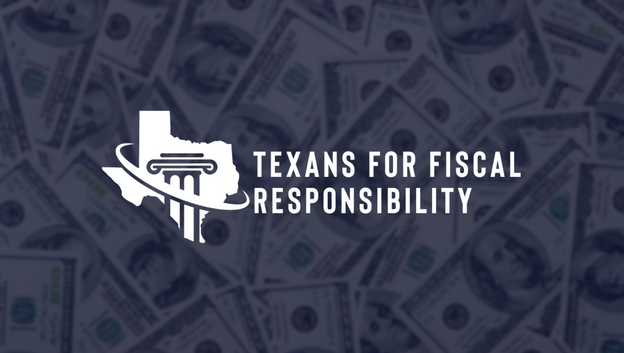
Recently a song from an independent music artist Oliver Anthony went viral on social media, ultimately topping many song-ranking charts, much to the chagrin of many well-established music artists. The song is chalked full of anti-elitist themes, presumably speaking to the feelings of many everyday Americans.
One of the Lyrics in the song entitled Rich Men North of Richmond reads as follows:
“Well God, if you’re 5-foot-3 and you’re 300lbs, taxes ought not to pay for your bags of fudge rounds.”
He is absolutely right, and this was a good reminder that the state of Texas has its own issues with using taxes to fund this sort of thing, which creates additional issues for Texas taxpayers as well.
Put plainly, Texas taxpayers subsidize many unhealthy sugary drinks and snacks for other Texans who find themselves as beneficiaries of welfare social safety net programs.
Recent Legislative (In)action
In the most recent legislative session, TFR Taxpayer Champion and State Sen. Mayes Middleton (R-Galveston) authored Senate Bill 346, which sought to prohibit the purchase of particular food and drink items under Texas’ implementation of the federal Supplemental Nutrition Assistance Program (SNAP). The legislation was filed before the legislative session even began but never granted a public hearing before its conclusion, thereby ending its legislative prospects.
For state lawmakers, this is not a new issue. Several attempts have been made in recent legislative sessions, which has collected notable support from lawmakers in leadership positions. Unfortunately, the legislation has never made it beyond a committee hearing.
In the 87th Legislative Session (2021), State Rep. Briscoe Cain (R-Deer Park) filed the same legislation in House Bill 343. Notably, this legislation was joint-authored by State Rep. Terry Canales (D-Edinburg), who had authored similar legislation in the 84th Legislative Session (2015), though it was much more targeted at energy drinks than other snack foods. Cain’s legislation was also notably co-authored by State Rep. Dustin Burrows (R-Lubbock), who served as the House Calendars Chairman and had also previously authored virtually the same legislation in the 85th Legislative Session (2017). Despite being heard early enough in the legislative session to ensure its consideration, Cain’s legislation only received a public hearing in the House Human Services Committee but was never voted on. Presumably, the legislation did not have enough support of the committee’s membership, though it had a Republican majority.
While introducing the legislation in the House Human Services Committee, Cain said,
“We should not use benefits to pay for products that are going against the intention of the program, because according to Congress, the intention of the program was that SNAP was to support nutrition among low-income households, which I would say is directly contradicted by allowing sweetened beverages to be purchased.”
Cain went on to draw a comparison between the Special Supplemental Nutrition Program for Women, Infants, and Children (WIC) and the National School Lunch Program, both of which have strict nutritional [restrictions] standards. He then went on to indicate that it is often the same beneficiaries of programs like SNAP, are also often susceptible to things like diabetes and serious complications.
Additionally, Cain referenced a 2016 study by the U.S. Department of Agriculture that indicated soft drinks were the top purchased item for SNAP beneficiaries. What does this mean? Well, generally speaking, it means that taxpayer dollars subsidize several billion dollars worth of sugar-sweetened beverages each year. Moreover, it also potentially makes taxpayers complicit in an alarmingly increasing set of ailments like diabetes and other similar health-related diseases that many of the same beneficiaries of SNAP might also seek taxpayer-subsidized healthcare to treat.
The following exchange between Cain, State Rep. Toni Rose (D-Dallas), and State Rep. James Frank (R-Wichita Falls) in the midst of the committee hearing is a good summary:
Of note, the 2022 Republican Party of Texas Platform consists of support for such Welfare Reform:
Plank 146: Welfare Reform: We support the abolition of all federal welfare programs, as they are not an appropriate role of the federal government. Until such time, welfare reform should encourage partnerships with faith-based institutions, community, and business organizations to assist individuals in need. We encourage welfare reform in the following areas:… (e) Requiring that money provided through the Supplemental Nutrition Assistance Program (SNAP) be used only for nutritious foods consistent with those included under the WIC program, and be released only with a photo ID of the approved user.
2022 Republican Party of Texas Platform
The Problem Persists
Though updated data on the subject has been fleeting at best, in principle, subsidizing bad habits would never end well for Texas taxpayers and it is incumbent on both state and federal lawmakers to address the issue.
Though generally Texans for Fiscal Responsibility (TFR) is opposed to the use of taxpayer money for social safety net programs, if those programs are going to exist, they should exist in a way that provides for the best use of the taxpayer money that supports it, providing the best outcomes.
Texans for Fiscal Responsibility relies on the support of private donors across the Lone Star State in order to promote fiscal responsibility and pro-taxpayer government in Texas. Please consider supporting our efforts! Thank you!
Get The Fiscal Note, our free weekly roll-up on all the current events that could impact your wallet. Subscribe today!




